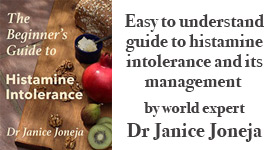|
|
New research gives hope for outgrowing milk allergy, but the more severe the symptoms, the less likely a child is to outgrow the allergy |
A study by researchers from Johns Hopkins, Dukes, Mount Sinai, National Jewish and the University of Arkansas that was recently presented at the 2011 Annual Meeting of the American Academy of Allergy, Asthma and Immunology (AAAAI), has shown that one third of children with milk allergy had resolved it by month 30 of follow-up. Milk allergy, the most prevalent of childhood food allergies, affects 2.5% of children younger than 3 years old. The research involved following 244 children who were established as milk allergic, and found that 89 of them had outgrown the allergy by month 30, with the average age of resolution being 2 years. Several factors were found to be associated with milk allergy resolution: children with a lower milk IgE, a smaller wheal on the skin after the skin prick test and milder atopic dermatitis. Source: American Academy of Allergy, Asthma and Immunology Children with more severe eczema less likely to outgrow milk and egg allergy The study above, by researchers from Johns Hopkins, Dukes, Mount Sinai, National Jewish and the University of Arkansas, has also shown that children who have more severe symptoms of atopic dermatitis are less likely to outgrow their milk or egg allergies. Milk and egg allergy was based upon clinical history and food-specific IgE, with resolution of the food allergy measured by successful (no reaction) ingestion of the specific allergen. Eczema severity was measured at baseline and 2 years old, and was categorised as none-mild and moderate-severe. During two years of observation of 500 children between the ages of three and 15 months, 46% of children with none-mild eczema at the beginning of the study outgrew their milk allergy, whereas only 25% of the children with moderate-severe eczema at the beginning outgrew their milk allergy. With regards to egg allergy, 39% of children with none-mild eczema at enrolment outgrew their egg allergy, compared to 21% with moderate-severe eczema. The study authors feel all the results of this research will help clinicians counsel parents on a condition that can have such a serious effect on an entire family. Source: American Academy of Allergy, Asthma and Immunology First published March 2011
|













